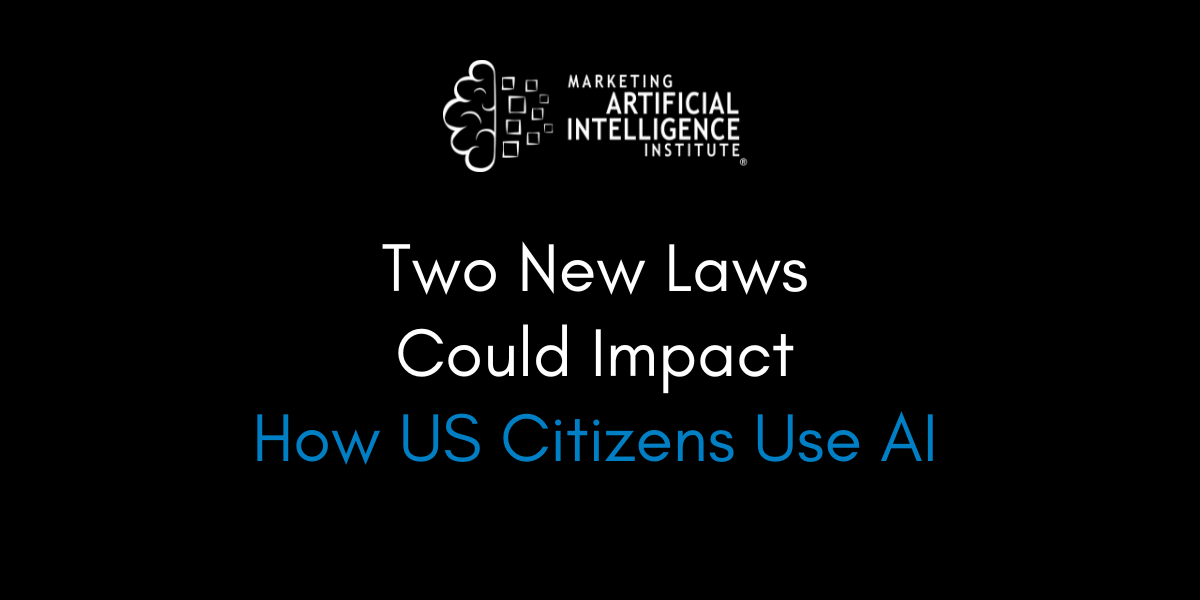Two new proposed laws could have a big impact on how US citizens use AI.
The first is a bill dubbed The American Privacy Rights Act.
It's a proposed bipartisan bill that would establish a national right to privacy law in the US.
(Currently, the US only has state privacy laws, which this act would replace.)
According to CNN, the proposed bill would ban the sharing your persona data with third parties, unless you give permission or the data is for one of the specific purposes allowed in the bill. It would also let users opt out of targeted advertising altogether.
The American Privacy Rights Act is still in draft form. When introduced, it must clear committee and pass both chambers of Congress.
The second proposed bill getting attention is the Generative AI Copyright Act introduced in Congress this past week.
The act would force companies to disclose when copyrighted material is used to train AI models.
It does this by making companies submit a notice to the Register of Copyrights when copyrighted data is used. These notices must be submitted at least 30 days before publicly releasing an AI tool or update. Otherwise, companies face a financial penalty. (The bill defines this as “a civil penalty in an amount not less than $5,000.”)
How important are these bills to AI?
“I think it just shows that there is stuff happening behind the scenes that we’re not hearing about every day," Marketing AI Institute founder / CEO Paul Roetzer told me on Episode 92 of The Artificial Intelligence Show.
"People in Congress are certainly aware of a lot of these issues. And I think progress will be made.”
However, you can expect AI and AI-related issues to get politicized soon enough. At least in the US.
"Someone will pick a fight on this stuff and battle lines will be drawn on each side," he says.
Neither bill is definitive yet. And it's unclear if either will pass a divided Congress. But one thing is certain:
"The safest jobs of the next decade are the IP attorneys and lobbyists who work in generative AI," says Roetzer.
Mike Kaput
As Chief Content Officer, Mike Kaput uses content marketing, marketing strategy, and marketing technology to grow and scale traffic, leads, and revenue for Marketing AI Institute. Mike is the co-author of Marketing Artificial Intelligence: AI, Marketing and the Future of Business (Matt Holt Books, 2022). See Mike's full bio.



